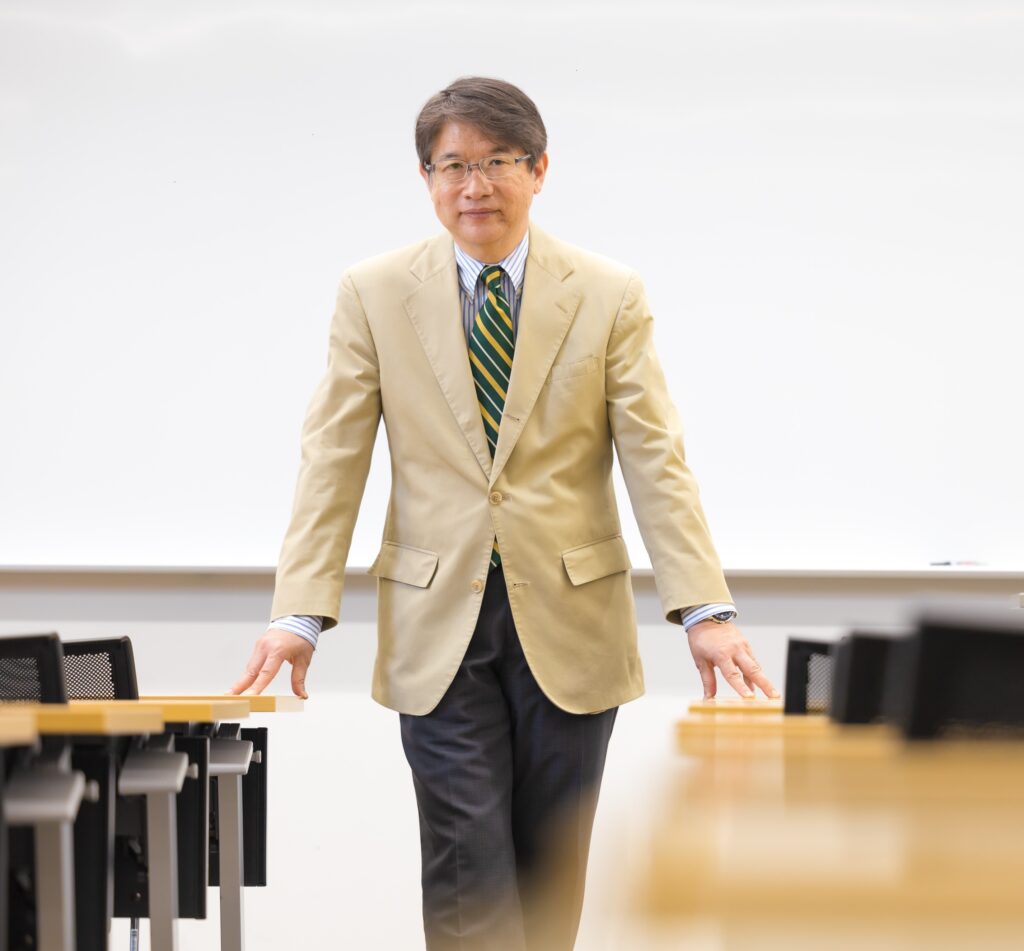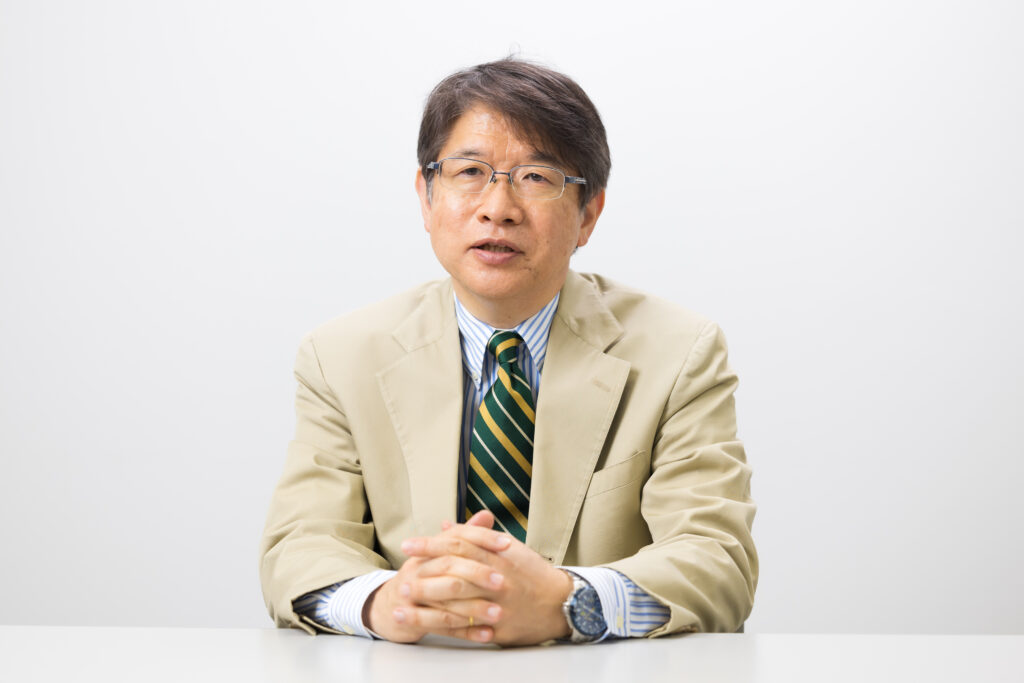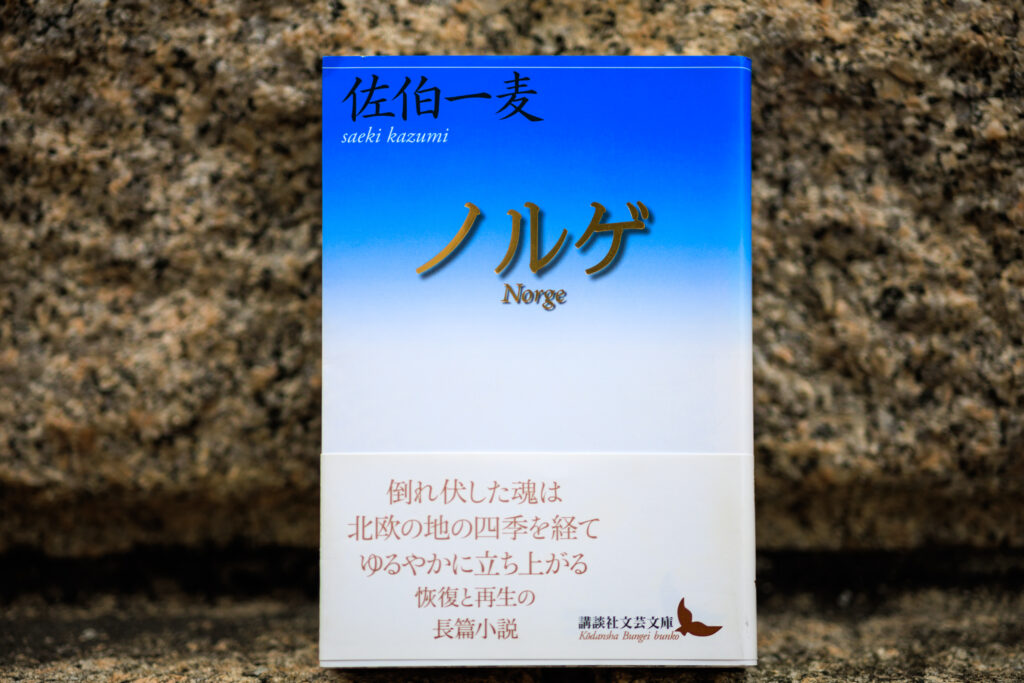
Faculty of Humanities Professor Makoto Ikeda specializes in English studies and language education, and works on the introduction of the 21st-century education method “CLIL” into Japanese education. How would CLIL, a system that fosters thinking skills, change education? Professor Ikeda shares ideas about the significance and potential of such a move.
My specialties are English language studies and English language education, and for about a decade now I have been focusing my energies on research for the diffusion of CLIL, or Content and Language Integrated Learning, in Japan.
This teaching method started to become popular in Europe some 20 years ago, and has been garnering attention due to its ability to cultivate not only content knowledge and English language abilities by teaching specific themes or curricular subjects such as mathematics, science, and social studies in English, but also for its role in nurturing the thinking abilities, discussion performance, and creativity of learners.
One of the most interesting points of this approach is how it transcends simply understanding a subject, and goes further to promote the ability to use the knowledge learned to create completely new ideas and express opinions. Instead of merely learning knowledge and techniques with simple, correct answers, the process of considering, analyzing, debating, and evaluating an array of information points about unanswered problems will allow learners to construct their own thoughts and generate something entirely new.
This method makes it possible to intentionally encourage the development of soft skills that can be used flexibly in all kinds of fields or pursuits. If CLIL is implemented widely in Japan, it has the potential to fundamentally change Japanese education.
Research based on three pillars of newest theory research, implementation, and teacher training

I divide my research into three pillars. The first is researching the latest theories. I am constantly checking the latest books and publications coming out of Europe, the origin of this method, and collecting information. However, because the environment and issues facing learners are different between Europe and Japan, I consider introducing them here with a focus on how best to apply them in Japan.
The second pillar is implementing and testing the effects. Classes using CLIL are conducted at research partner schools nationwide, and I collect the resulting data. It is of course important to verify the effects of this approach, such as how English language ability was cultivated and how curriculum conducted using CLIL helped in imparting academic skills to the learners.
But I also believe it is important to make records of the innovations implemented by the individual teachers so they can be used in other schools in the future, and to compile that information in articles and books.
The third pillar is training teachers. I promote CLIL pedagogy through lectures and workshops for teachers nationwide, from elementary school through college levels. This also serves the role of giving research results back to society.
Infusing all education with CLIL, which significantly improves teaching skills
When introducing CLIL, there are many things to consider and prepare in addition to teaching English. In addition to studying other subjects and the social themes that will serve as subject matter, researching teaching materials is also necessary. It is also essential to devise ways to get the students to think.
This can all be very difficult, but every single teacher who implemented CLIL says the same thing, “I’m having fun becoming a learner again. It makes me so happy to see students improve their abilities because I’m teaching them with the new method I’ve learned.” Using the CLIL approach significantly improves teaching competencies, and many teachers say they cannot return to the old way of teaching.
Currently, CLIL is mainly used in English language education, but the principles and techniques can be applied to other subjects in the curriculum in Japan. My ultimate goal is to introduce CLIL into all faucets of education in Japan. I want to change the world of education in Japan. And for this goal, I plan to continue doing all I can.
The book I recommend
“Noruge”(Norge)
by Kazumi Saeki, Kodansha Bungei Bunko

In this “I” novel, the writer depicts his experience of accompanying his wife to Oslo, Norway, for her study abroad program. The reader gets pulled right into the feeling of living abroad, with developments like friendships gradually expanding in the unfamiliar environment. Vivid descriptions of the nature and weather make it feel as if you were living right there in Oslo.
-
Makoto Ikeda
- Professor
Department of English Literature
Faculty of Humanities
- Professor
-
Professor Ikeda graduated from the Department of Economics, Waseda University School of Political Science and Economics, and the Department of English Literature, Sophia University Faculty of Humanities. He completed his M.A. in English and American Literature at the Sophia University Graduate School of Humanities. and the King’s College London Postgraduate Applied Linguistics & English Language Teaching M.A. Program. He completed the Doctoral Program in English and American Literature at the Sophia University Graduate School of Humanities as an ABD, and received a Ph.D. in Literature from the same university. After serving as a Department of English Literature Lecturer and Associate Professor in the Sophia University Faculty of Humanities, he has since served in his current position as Professor.
- Department of English Literature
Interviewed: June 2022